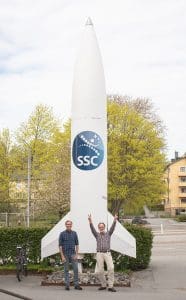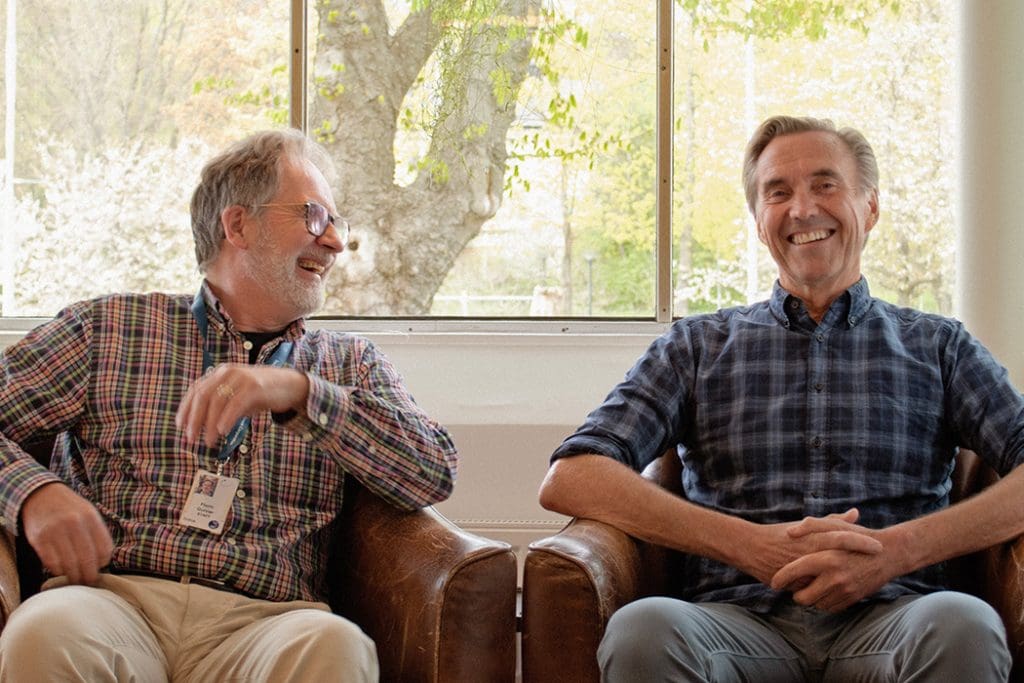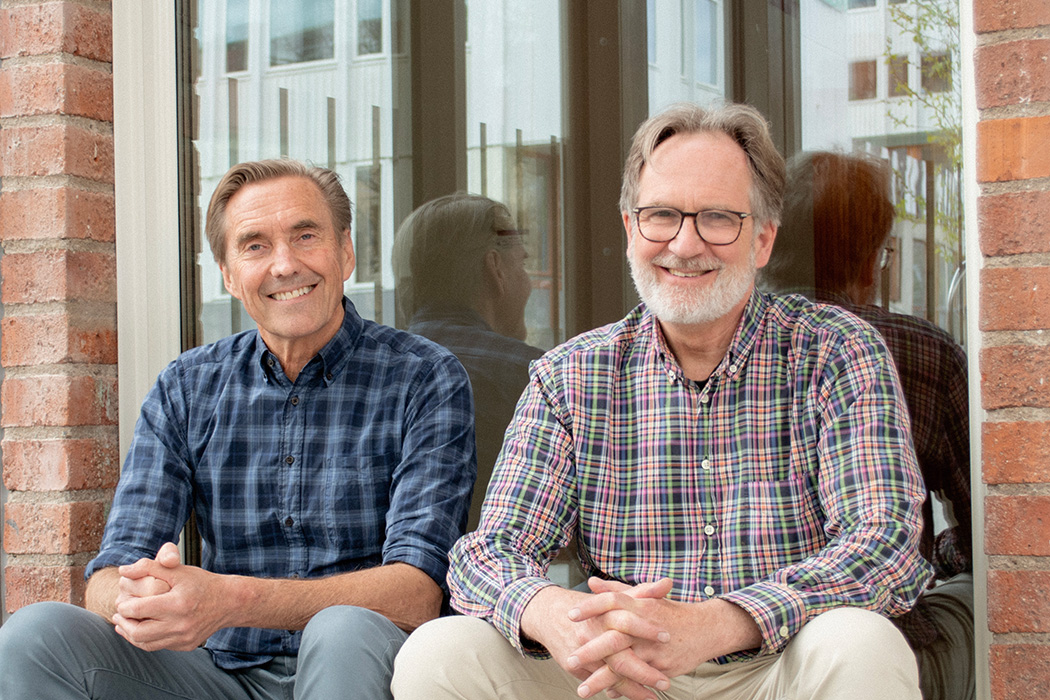What makes someone stay at the same workplace for their entire working life? Gunnar Florin and Kenneth Löth recently celebrated 40 years at SSC, and there is no doubt why they stayed and how much they’ve enjoyed their years in space.
“Where else would I have had as much fun and been able to take part in equally exciting projects ‘from the cradle to the grave’? says Kenneth, who recently retired but is still working on a couple of projects for the company.
“I think there is no other workplace where you get so much mandate and trust. Together with a great variety of work tasks and very nice colleagues, that is the reason I’ve stayed here so long”, says Gunnar.
Gunnar came to SSC in 1984, directly after his graduation at KTH (Swedish Royal Institute of Technology). The company was then 12 years old, and the pioneering spirit was tangible. Sweden would invest heavily in space. The Viking project, Sweden’s first satellite, had just begun*.
Not only did Gunnar work on exciting satellite projects. He also got an assignment abroad for three years, when SSC detached him to the French space agency CNES as an extra

resource within the SPOT-4 satellite project.
“It was a great opportunity, to learn the language and the culture”.
After France, Gunnar worked with Odin, an astronomy and atmospheric research satellite that was designed to live for two years but is still operational 23 years after launch.
”Odin was a nine-year project. Satellite projects are usually very long, which can make me nervous, working several years on something that will be launched in a few seconds, with all the risks that it means.”
To get to work with shorter projects, Gunnar switched satellites for sounding rockets as a project manager, a job he kept for 18 years.
For Kenneth it all begun in the town Arboga in Sweden, where he lived and worked with reviewing radio systems for civil and military airports, when an ad in the newspaper caught his eye. It was about a job at Rymdbolaget (the company’s name before SSC), which he thought looked very interesting. And it was. He has since worked for SSC’ division for rockets and balloons, deeply involved in many sounding rocket projects, and also led the Payloads & Flight Systems department for many years. The reasons why he stayed so long at SSC are many.
“There are constantly new challenges and problems to solve. From the outside, it may seem as I’ve had the same job for almost 40 years, but there have always been completely new projects with new challenges and areas of responsibility. To work with such projects means to understand what the researchers really want for them to be satisfied, and be involved in installing and operating the experimental equipment before and during the flight – regardless of whether it is a rocket campaign at Esrange Space Center, at Kennedy Space Center in Florida or on a Parabolic flight outside Bordeaux, France”.
“I’ve appreciated our work process and the relatively short projects, where I’ve seen the big picture and received direct feedback, from both paying customers and researchers. Witnessing the joy of scientists after a successful mission, following years of preparation, is truly priceless”, Kenneth continues.
Having the same colleague for so many years, often working on the same project, has bound them together in a special way.
“We have spent many hours together. We have almost been like a married couple”, says Gunnar and laughs.
Gunnar looks back at the years in the company.
 “A lot has changed. In the past we were solely based in Sweden. Today the company has become more international, which I really appreciate. We are now a diverse community of individuals with various nationalities”.
“A lot has changed. In the past we were solely based in Sweden. Today the company has become more international, which I really appreciate. We are now a diverse community of individuals with various nationalities”.
“I have gone to the same workplace for 40 years. SSC has been there for most of my life. It all began with an ad at KTH and my interest in environmental issues and world-wide communication. I’m proud to work here, with a close connection to science and the Earth”.
Gunnar and Kenneth agree on one top advantage during these 40 years: The colleagues and the fellowship.
“It is so much fun and stimulating to work with motivated and committed people who support each other when we run into various problems”, says Kenneth.
“There is a great purpose to our job – we actually work to ‘help Earth benefit from Space’ – in our case, it is not just something we say.
*) SSC was building satellites until 2011 when the Space Systems Division was divested.

